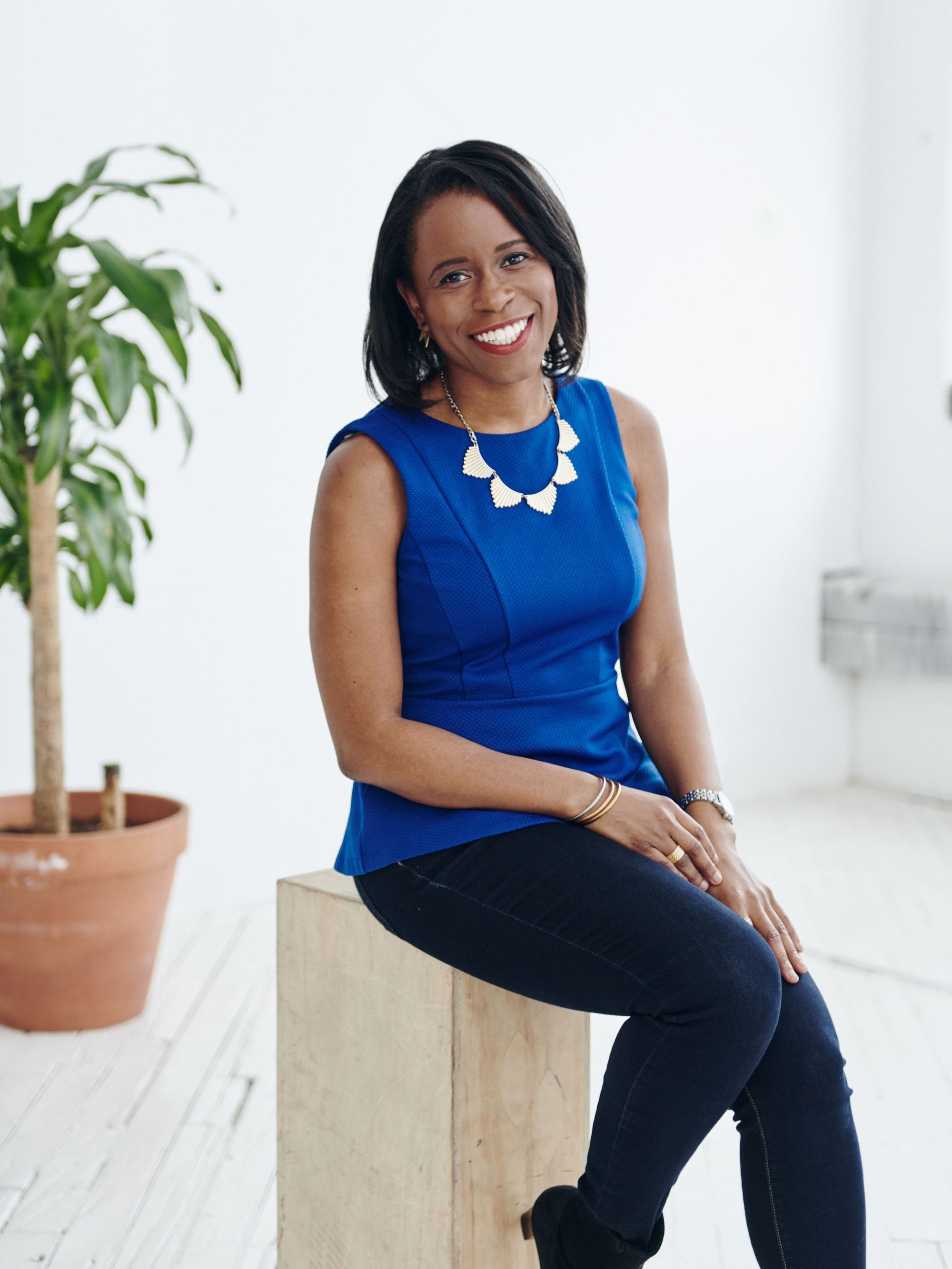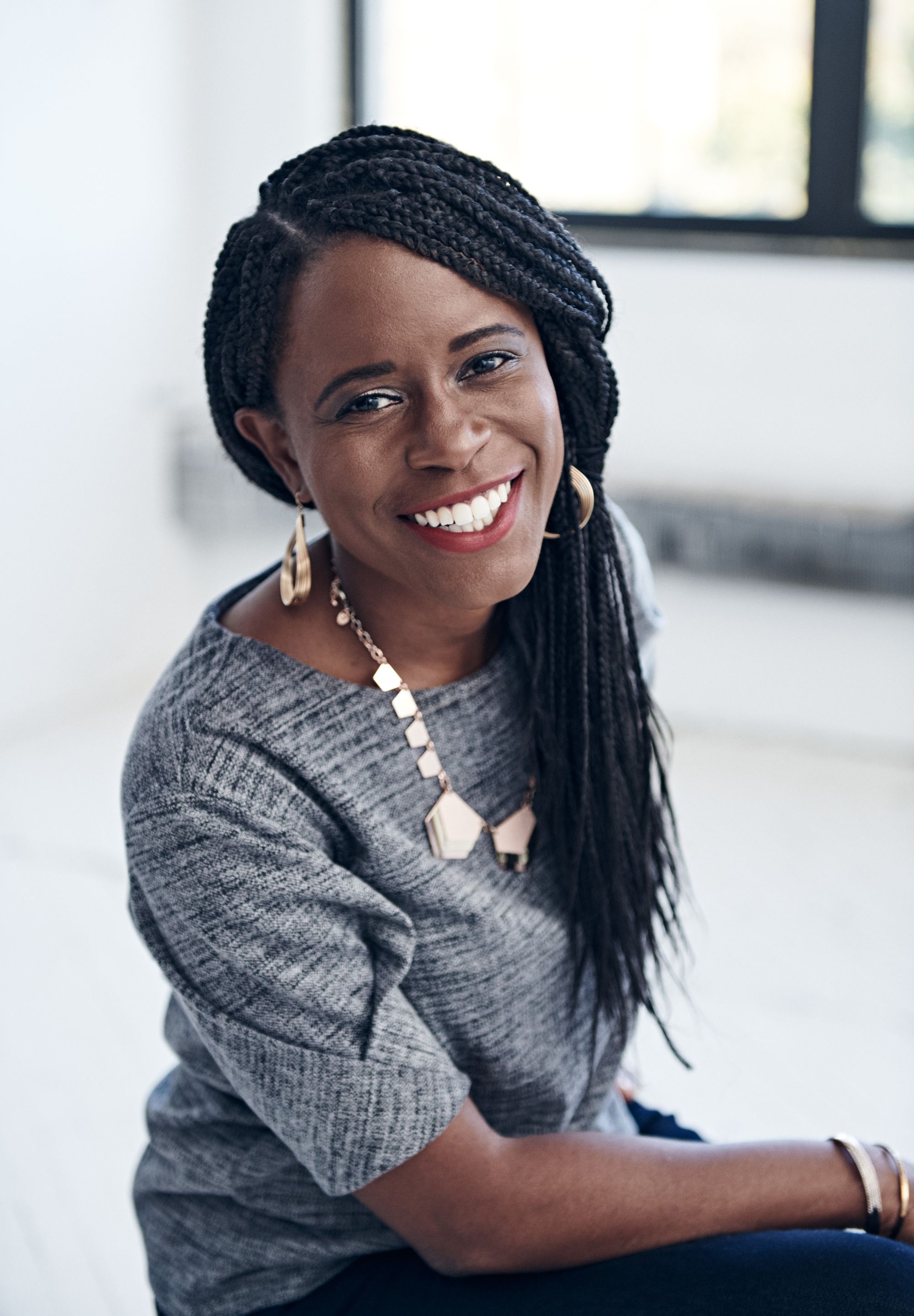Statistically, startups led by minority founders receive less funding than their racial counterparts. As a result, we’ve seen an increase in minority-founded VC firms that are emerging to fund promising founders who are often overlooked in receiving venture capital.
One investor who’s working to close the venture funding gap is Gabby Cazeau of Harlem Capital. Harlem Capital is a $40mm seed-stage VC fund focused on investing in disruptive companies founded by women and minorities. Harlem Capital is on a mission to change the face of entrepreneurship by investing in 1,000 diverse founders over the next 20 years.

Before Harlem Capital, Cazeau worked as an engineer at General Mills. While there, she did everything from early-stage consumer research, to building prototypes, and then going to factories across the country to figure out how to make products scale.
From there, she began working at Harlem Capital as an intern, and then later became a Venture Fellow. Now, Cazeau is a Senior Associate at Harlem Capital, and she focuses on deal sourcing, due diligence, and connection building across the tech and entrepreneurship ecosystem.
Recently we caught up with Cazeau and she shared her tips for entrepreneurs on pitching investors and on developing their pitch.
What do early-stage founders underestimate when pitching to investors?
Founders have to keep in mind that when you’re early stage, investors are investing in you, your vision, and what you’re excited about building.
So, while yes, investors care about the market founders are in, it’s also about the investor trusting the founder and feeling comfortable with taking a bet on them to get the job done.
When you’re reviewing companies, what is it about the founder or the company that sparks your interest?
For the company and the founder, it comes down to the compelling insights that they've identified. I want to know why it's such an important insight, and then what they've been able to build to solve the problem.
On the founder side, I’m interested in people who have a grand vision for what they want to see in the world, how they plan to build it, and the impact that it will have. I’m impressed by founders who have a lot of grit, persistence, and hustle to get things done.

What tips do you have for someone pitching investors via cold email?
I definitely think people underestimate the value of a cold email. At Harlem Capital, we get a lot of them and some of those have turned into investments. Increasingly, investors are starting to realize that cold emails can be valuable and are looking at them more closely.
My advice would be to look deeply at the investor’s website before you send the cold email. Oftentimes, their criteria will be listed there so make sure you understand how your business matches that criteria - whether it's about a revenue target, a market, or their thesis in general. Really understand what that tie is and build that into your pitch story and cold email.
In your email, it’s important that you make your message clear and concise. Make sure you attach your pitch deck, describe the traction you have that will get the investor excited, share what you're raising and what you're looking for, and then the problem, solution, and your reasons why you’re best suited to solve the problem.
Lastly, I will admit that investors do get a lot of emails, so if you don’t get an immediate response, be sure to follow up with them.
Do you have any tips for early-stage founders on creating a one-liner about their company?
I know it’s incredibly difficult, but try to be as simple as possible. Try to use action words that will vividly describe what you're building.
In your one-liner, you should be able to quickly communicate what you’re building and how you’re doing it. Also, try to avoid industry-specific jargon so that r anyone will be able to quickly understand what you’re building.
What should you include in your quick pitch (a pitch within two minutes or less)?
First, I want to emphasize that you should share enough information to get the person excited, but leave room to talk later about your business more broadly. In your quick pitch, some of the key things investors are looking for is information on your audience, the problem, and then the solution. You want to share why your solution is the best to solve the given problem. If you've already built the company or have some sort of traction, share that traction. It’s important for the investor to know that you’ve gotten some customers and have results already. They should know that something is working so far and that you have some nuggets of gold.
From there, quickly share a little bit about your team and your story. Last but not least, show your excitement in your pitch because the investor will be able to feel and feed off of that energy.
What advice do you have for founders on perfecting their pitch?
Make sure you're continuing to practice your pitch, and refine it frequently, whether it's via email, at a large event, or one on one. You know your story best and should get to a point where you can convey it well to an audience.
Depending on who the pitch will be directed towards, think about how you can tailor it to that specific audience or group. What you pitch to a VC will be different from what you pitch to your customer, the media, potential new hires, etc. Ultimately, you want to make sure you’re telling your story for each potential lens that someone is coming from.

